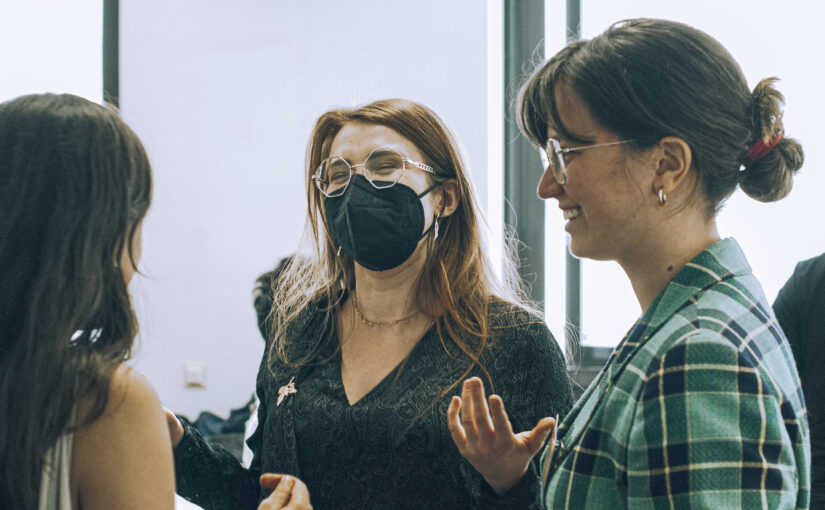Friday, 23rd of February 2024 in HS 3D and via Zoom.
Our Internal Workshop at the end of each winter semester provides a space for students to present whatever they are currently working on. Everyone is welcome to present their stuff, be it seminar paper, master thesis, or just a for-fun project. It doesn’t matter how far developed your ideas are – whether they are at the very beginning, in progress, or ready to be submitted. The Internal Workshop is your chance to practice, discuss, and exchange your thoughts with others. This is your stage!
In case you are interested in presenting, please inform us about your topic. Just write an email to Gabriel (gabriel.levc(Replace this parenthesis with the @ sign)univie.ac.at).
Schedule (preliminary):
| Time | Speaker | Topic |
| 10:45 – 10:50 | Opening | |
| 10:50 – 11:35 | Gabriel Levc | On Describing Artworks to People with Visual Impairments |
| 11:45 – 12:30 | Yara Katnik | The Shared Representations Theory of Pain Empathy |
| 12:30 – 14:00 | Lunch Break | |
| 14:00 – 14:45 | Bailey Fernandez | Normative Social Behavior and Memorial Design |
| 15:00 – 15:45 | Stefan Forster | Decision For One or: How to Collectively Decide as a Single |
| 15:45 – 16:15 | Coffee break | |
| 16:15 – 17:00 | Max Herrmann | Liability, Moral Responsibility and Commitment |
Abstracts
Stefan Forster – Decision For One or: How to Collectively Decide as a Single
Normative Decision Theory has been a hot topic in Philosophy, Economics and Statistics for a while now. Somewhat surprisingly the conceptual framework assumed in Rational Choice under Uncertainty and/or Incommensurable Values is remarkable similar to the framework assumed in the theory of Collective Choice. In my talk I want to present this observation in a(n almost) non-technical way and discuss (with you) whether normative approaches to collective choice – such as: Deliberative Democracy, Voting Theory and Welfare Economics – can be translated to norms or action-guiding principles in individual choice.
Max Herrmann – Liability, Moral Responsibility and Commitment
I will draw on Mara Marin’s account of commitment, because I’m convinced that the current model of attributing blame and responsibility in a legal context (which Iris Marion Young coined the liability model) is not sufficient, if we want to tackle global crises like climate change, exploitation of resources, unemployment, poverty, pandemics and financial crises. I will specifically focus on two goals, where I’m convinced that the commitment model would perform better: achieving sustainable living conditions for future generations and alleviating the struggle of refugees by targeting the root causes of why they have to flee.

